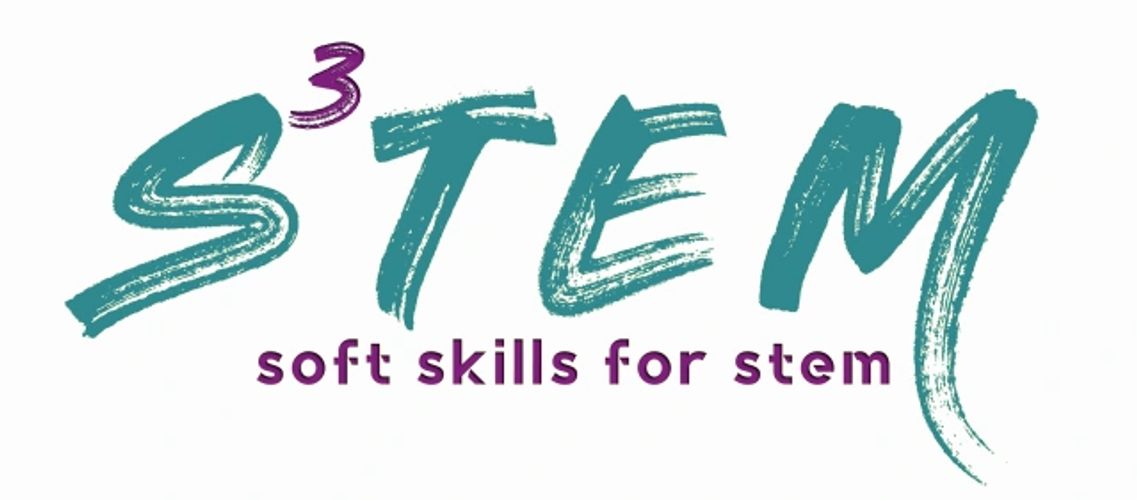Inside The Mind Of Anthony L. Harris
“There’s a leader, but everyone has an important role.”
–Anthony Harris
It is rare to find a student that is as committed to the success of his fellow students as he is to his own success. Most students are boggled down with taking care of the academic and personal challenges that matter most—their own. Anthony L. Harris, however, is an entirely different story.
From his days as a freshman at the University of Louisville in ’01-‘02 to receiving his master’s degree in education in May of ’08, two things consistently remain on Harris’ mind: student success and student retention.
Through program development or the daunting task of being a founding member, Harris has played a crucial role in the success of organizations such as Under Graduate Students Helping to Recruit (USHR), Collegiate 100 (a division of 100 Black Men of America), Think College Now, the Graduate Association for Professionals in Student Affairs (GAPSA), and the Student African-American Brotherhood (SAAB).
I’ll let the man himself tell you more about what’s going on inside the mind of Anthony L. Harris.
HERE COMES BIG BROTHER DEAN
One of the things that jumped out at me when I looked at some of your career goals is your desire to serve as Dean of Students at a major four-year public college or university. How did you become so passionate about student success?
It was because of the people that I had contact with throughout my undergraduate experience and in high school as well. A lot of the professors that I had within my major were very hands on. Even the administrators I came in contact with had a student-first focus.
What do you mean by “hands on”?
They gave me a lot of guidance and mentorship—explaining what to do and not to do. They took a lot of time out of their schedules and became a resource for me.
So their actions made you want to be in a position to do the same for other students?
Yes. As an undergraduate, I was the resident assistant and I worked with the admissions office. One day as I was talking to one of my mentors she suggested that I might want to look at college personnel as a career. So I thought about it and I looked at it and I realized that’s where my passion is. I was always surrounded by younger students that were interested in learning from me. I was like the big brother.
Big Brother Ant, huh?
Right.
my grandparents, my cousins—told me how important
education was, when I got to the university I had to
find people who had the same mindset.
PROBLEMS WITH THE CRAYON BOX
So, let’s fast forward to five years from today. Let’s say that you are the Dean of Students at an institution. Give me an example of some of the initiatives that you would put in place to improve student success and retention.
Well, I think that it’s very important to meet students where they are. That’s what we do in SAAB – the Student African-American Brotherhood. It was founded by Dr. Tyrone Bledsoe and his goal is to reach the student that is not really involved on campus. So getting those African-American or Latino brothers, or whoever, involved with something is important because when they have some ownership in the university they are more likely to persist and keep on going until they reach their goals.
True.
So it’s about having good programs, not just the “crayon box” activities, events, and organizations.
Did you call them? “Crayon box” activities?
Right. The crayon box—the basic, typical activities that every college and university has.
That’s pretty funny. So, you want to provide them with some different and refreshing things.
Right!
THE SPIN ON STATISTICS
You just mentioned SAAB—The Student African-American Brotherhood. Is the purpose of that organization to improve African-American male student retention?
Yes. That’s exactly what the purpose of SAAB is.
Well, speaking of young brothers, what is going on with young African-American males today? We are constantly bombarded with negative reports and statistics via the media, but I know plenty of young brothers like you who are making it happen. What I would like to know is: how can we produce more young men like you?
I think it primarily has a lot to do with the statistics that they’re using. For instance, you always hear that there are more African-American males in the prison system than in the classroom…in higher education. But whole reality is you have to look at the age range they usually use: 18-51. Within that age group there are more males in the prison system but if you only look at the college age males then it’s better than what they put out there.
FALLING BETWEEN THE CRACKS
Young males are not really being sought out. Like, I’m not Greek [in a fraternity], but I have a lot of friends who are Greek and I think the Greek system is great. But it’s not for everyone and on most campuses if you’re not Greek you’re not really involved. You know? The Greek members are the ones who are typically the leaders. But with my experiences there were not a lot of Black Greek organizations consistently on campus so there were a lot of opportunities for others to take leadership roles.
Oh. I understand what you mean. You’re saying that there needs to be more types of organizations that are reaching young African-American males and providing them with leadership opportunities because those that aren’t interested in Greek life are falling between the cracks.
Right, right!
It comes down to dedication and support.
You have to be willing to do the work
and you have to have people
around who are really
willing to do
the work.
EVERYONE HAS AN IMPORTANT ROLE
Did you help start SAAB?
I helped bring it to my campus. One of the new faculty members who graduated from the program and his mentor asked around 11 black males on campus to help get it started at the University of Louisville and I was one of them. Lawrence was part of that as well.
Lawrence Watkins, founder of Great Black Speakers?
Yes. So, all of us spearheaded the efforts to get more black males involved on campus. SAAB has been there since the fall of ’05. It’s a collective effort. There’s a leader, but everyone has an important role. It’s a place where students can come voice their concerns, share their frustrations, and actually do something on campus. It’s a support group and it has different components. We promote community service, health and wellness, economics…it’s black males holding each other in a positive light and showing support for one another.
SERIOUS ABOUT MENTORING
Weren’t you also one of the founding members of USHR—Undergraduate Students Helping to Recruit?
Yes.
Is that another mentoring program?
Yes.
Well, obviously you’re serious about mentoring. Why is it so important for someone to have a mentor?
A lot of times, first-time college students don’t have that guide, that person to look at who can show them what they need to do. USHR, for example, is a program designed to mentor to high school seniors. We want to help them before they even get to college so that when they get there they’ll have a familiar face—a big brother or big sister—to go to. They can say “hey, I’m taking these classes. What do you suggest?” And then we can help them with their transition period.
THE POWER OF LIKE-MINDED PEOPLE
What about the personal impact mentoring has had on you?
Mentoring for me was…well…I was the first person in my family to go to college.
So, you were a first generation to college student.
Yes. So, for me even though my family—my mother, my aunts, my grandparents, my cousins—told me how important education was, when I got to the university I had to find people who had the same mindset.
How did you do that? Because that’s one of the most important things—finding people who have the same mindset as you. Finding people who want to be successful like you is paramount to success, but so many students end up in the wrong crowd. So, how do you find people that are success-minded like you?
It was some trial and error, but luckily for me I had a good network of people that I came from high school with. And we all stayed connected for the most part. You know, as time goes by people move on, but when I got on campus the people I connected with in admissions nurtured and supported me. They saw what I was capable of but it was still some trial and error.
But obviously you didn’t give up. You kept looking until you found the right people.
Right.
I was always surrounded by younger students
that were interested in learning from me.
I was like the big brother.
PROFESSOR PROBLEMS?
Let’s back track a little bit and talk some more about you becoming the Dean of Students. I believe that’s going to happen for you. One question I get from a lot of students is “What should I do when I’m having trouble with a professor?” So, as the Dean of Students if a student came to you and they were having a problem with a professor how would you handle it?
The first thing I would ask them is whether or not they talked to the professor. A lot of times students come to faculty members or administrators because they don’t know how to talk to professors. They don’t know how to bridge that gap, but they have to at least try to talk to that professor or maybe someone in the department. You have to address the issue. There a so many times when the professor doesn’t even know that there’s a problem to begin with.
That’s true. A student has to make sure that the professor is aware of the problem. Is it safe to say that even if a professor seems a little bit intimidating nine times out of ten he or she really does want to help?
Yes, for the most part. Some professors aren’t “people” people, but there’s normally an avenue that you can take to talk that person. And you have to before you come to an administrator. If you try and things aren’t working out then you come to an administrator, the department head, or dean. You have to give the professor a chance to take care of it.
HOW TO BE A PIONEER
That’s the truth. Earlier we talked about how you were instrumental in helping to start two organizations on campus. Many students are looking to be leaders or pioneers and start organizations. What are some important keys for starting a student organization?
It comes down to dedication and support. You have to be willing to do the work and you have to have people around who are really willing to do the work. Starting an organization is not the easiest thing in the world to do. There’s a lot of paperwork and steps to go through so you have to have people that are really in it to win it and are determined to get stuff accomplished. Two or three people are not enough because most universities require more than three people to start an organization on campus. Without enough people you’ll just start an organization one year and the next year it’s gone. You need people that are there for the long haul.
Anthony, I want to thank you for a few minutes of your time and for the valuable insight. It’s easy to tell that student success is of the utmost importance to you. You’ll make a great Dean of Students.
Thank you. I have had a great time!
Hey! Are you a positive, high achieving young person? Would you like to be interviewed by me? Do you know any positive, high achieving young people I should interview?
I’m looking for successful student leaders, athletes, artists, and entrepreneurs to interview for the The Millennial Mind™ segment of my blog. If you are interested then email your BRIEF bio, resume, and photo to Al The Inspiration Duncan
- Categories: ArticlesMentoringYoung AdultYoung Folk Today







